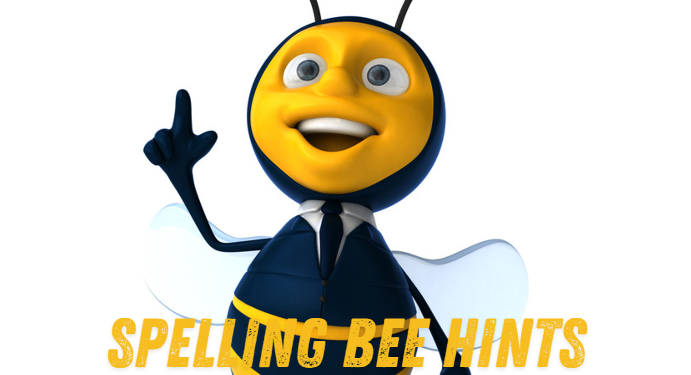Spelling Bee hints have been a staple in education for years, offering students an opportunity to showcase their spelling abilities and demonstrate their commitment to language mastery. Whether you’re a first-time participant or an experienced contender, excelling in a spelling bee requires preparation, strategy, and focus. This article provides key hints and tips that can help you sharpen your skills and increase your chances of success in a spelling bee competition.
1. Understand the Rules of the Competition of Spelling Bee hints
Before you even begin preparing for a spelling bee, it’s essential to understand the rules. Each competition might have slightly different guidelines, but most follow a similar format. Typically, contestants take turns spelling words aloud, with each word having a set time limit for Spelling Bee hints.
Also read: What is The BART Springtime ?
Key things to consider include:
Time limits: Be sure to spell the word clearly within the allotted time, often ranging from 30 seconds to a minute.
Clarifications: If you don’t understand the word, ask for a definition or the origin of the word.
Pronunciation: Make sure to listen carefully when the word is announced; mishearing a word can lead to errors.
Order of words: Words usually get progressively harder as the competition goes on.
Understanding these basic rules of Spelling Bee hints can help reduce the pressure and give you a clearer sense of how to manage your time and make the most of your opportunities.
2. Spelling Bee hints Start by Mastering Commonly Used Words
While Spelling Bee hints can sometimes feature obscure words, many competitions rely heavily on commonly used words. Start by reviewing common words that appear frequently in spelling bees, such as: Homophones (e.g., “their,” “there,” and “they’re”)
Prefix and suffix words (e.g., “unhappiness,” “careful”)
Commonly misspelled words (e.g., “accommodate,” “definitely,” “occur”). There are many word lists available online and from official spelling bee organizations. Make sure to study these lists thoroughly, and try to focus on words that are most likely to appear.
3. Break Words Down into Syllables
One of the most effective strategies for spelling longer, more complicated words is to break them down into smaller syllables. By focusing on each syllable individually, it becomes easier to piece the word together and recall the Spelling Bee hints correctly. For example, the word “bibliography” can be broken down as: Bible-ion-graph-y. his method allows you to focus on small, manageable portions of a word, which improves accuracy. Remember that correct syllable stress can also help in recalling the correct spelling. Pronouncing the word in syllables can act as a mental trick to unlock the correct letters.
4. Spelling Bee hints Learn Word Origins (Etymology)
Understanding the etymology of a word can be extremely helpful in Spelling Bee hints it correctly. Many words have roots from languages like Latin, Greek, French, and German. By knowing the origins of a word, you can predict how it is spelled, even if you’ve never encountered it before. For example, the word “chauffeur” comes from the French word meaning “stoker” (as in the person who stoked a fire to power an engine), which explains the unusual “ch” spelling instead of a more English-sounding “sh.” Familiarizing yourself with the linguistic history of a word can often provide critical clues about its spelling.
5. Practice with Word Lists and Spelling Bee hints Apps
Use word lists as practice material. These lists typically consist of words from previous spelling bee competitions and are great for honing your skills. Many apps, such as Spelling Bee hints or Quizlet, allow you to practice spelling on-the-go. When using a spelling app, you get the benefit of having practice material readily available, along with tools for quizzes and repetition. By using these resources regularly, you can build your confidence and accuracy.
6. Spelling Bee hints Stay Calm Under Pressure
One of the biggest challenges in any Spelling Bee hints is managing nerves. It’s common to feel pressure as the competition progresses, especially when you face unfamiliar words. However, staying calm and composed will improve your chances of success. Here are a few tips to remain focused during the competition: Practice mindfulness techniques: Breathing deeply and staying centered can help calm your nerves. Visualize success: Picture yourself correctly spelling words in your head. Positive visualization can build confidence. Take your time: Don’t rush through the word. If you’re unsure, take a deep breath, request clarification, and proceed slowly.
7. Use Mnemonics and Memory Tricks
Mnemonics and memory tricks are powerful tools when learning how to spell difficult words. A mnemonic is a phrase or pattern that helps you remember something more easily. For example, the word “necessary” is often tricky for spellers, but you can remember it with the mnemonic: “Never Eat Cake, Eat Salad Sandwiches and Remain Young.” Similarly, grouping similar-sounding words together (like words with similar prefixes or suffixes) can help you remember their Spelling Bee hints patterns. Additionally, using visual memory techniques, like writing out the word multiple times or associating a word with an image, can make it easier to recall when needed.
8. Improve Your Vocabulary of Spelling Bee hints
Expanding your vocabulary is another crucial strategy. While it’s true that not every word you encounter in a Spelling Bee hints will be familiar, a wide vocabulary helps you make educated guesses. The more words you know, the more likely you are to recognize common patterns and suffixes that apply to unfamiliar words. Read widely, including books, newspapers, and other resources. Keep a list of new words you encounter, and make sure to learn their meanings, spellings, and uses in sentences. This habit not only helps with spelling but also increases your language proficiency overall.
9. Know the Commonly Confused Word Pairings
Many Spelling Bee hints contestants get tripped up on words that sound similar but are spelled differently. These pairs of words often have very different meanings, and knowing the distinctions between them can be a huge asset. Some examples include:
Accept vs. Except
Affect vs. Effect
Complement vs. Compliment
Creating flashcards or writing down these confusing word pairs and practicing their spelling can ensure you never confuse them in the heat of competition.
10. Spelling Bee hints Practice Regularly and Set a Routine
Success in a Spelling Bee hints is all about consistent practice. Try to dedicate at least 30 minutes a day to studying new words, reviewing difficult ones, and testing yourself on spelling rules. By sticking to a routine, you can reinforce your knowledge and build confidence. In the final weeks leading up to the competition, increase your practice time to simulate the intensity and pressure of the event. Mock competitions with friends or family members can help you prepare for the real deal.
11. Learn to Handle Mistakes
Even the best spellers make mistakes. If you misspell a word in the competition, don’t dwell on it. Take it as a learning opportunity and move on quickly. Mistakes are a part of the Spelling Bee hints process, and handling them gracefully can keep you focused on the task at hand. Additionally, observe other contestants. Learn from their successes and mistakes, and see what techniques they use to stay calm and confident.
Conclusion
Spelling Bee hints are a wonderful way to challenge yourself and improve your language skills. With consistent preparation, effective strategies, and a calm mindset, you can excel in a spelling bee competition. Focus on mastering commonly used words, breaking down syllables, studying word origins, and building your vocabulary to increase your chances of success. Keep practicing, stay calm, and remember that every misspelled word is a valuable learning experience.

